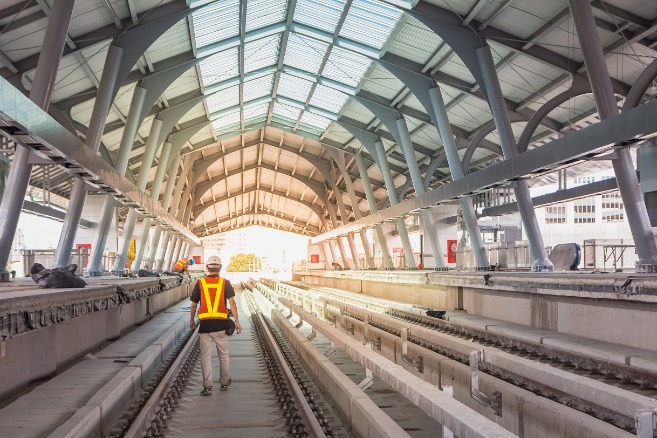
What does a railway engineer do?
Railway engineers are responsible for the planning, design, construction, and maintenance of railway infrastructure. This includes track systems, signalling, overhead line equipment (OLE), and supporting civil structures. Working on projects across passenger and freight networks, rail engineers ensure that systems operate safely, efficiently, and in compliance with industry standards such as Network Rail’s GRIP and PACE processes.
Working alongside rail or civil engineers, but responsible for the mechanical, electrical and public health aspects of complex rail projects, are MEP engineers.
How much do engineers on the railway earn?
Railway engineers earn around £27,500 at graduate level, raising to an average of £38,000 for a standard engineer role. A promotion to senior engineer will net you an average of £50,000 per year, while principal engineers can command around £65,000, but salaries vary widely based on the nature of the project.
Engineers on contracts typically earn between £28 and £45 per hour (or £300 to £450 per day), while senior engineers command £36 to £55 per hour (or £375 to £550 per day). Principal engineers earn between £45 and £60 per hour, equating to £400 to £600 per day.
This information is drawn from Carrington West's salary surveys, created every 6 months to provide invaluable market analysis and salary benchmarking resources to built environment professionals. View and download the full documents below.
They often collaborate with multidisciplinary teams, including planners,surveyors, and project managers. Roles can be site-based or design-focused and often involve shift work and weekend schedules due to the operational nature of the rail network. An understanding of health and safety legislation and technical standards such as NR/L2 and BS EN norms is essential.
You can use the link below to search for jobs on the railway, working with leading private and public sector organisations all over the UK through Carrington West's job search. |
